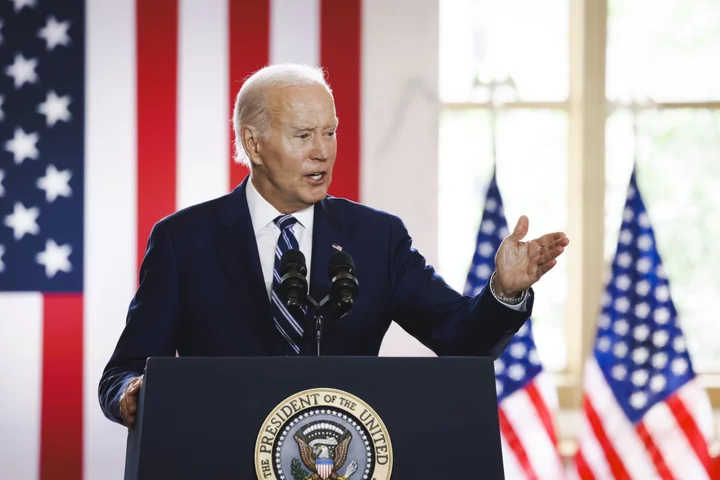President Joe Biden will announce new steps to protect student-loan borrowers after the Supreme Court threw out his plan to forgive billions of dollars in debt, undoing one of his signature initiatives, according to a White House official.
Biden will speak on the court’s ruling and detail the actions his administration is taking in remarks Friday, according to the official familiar with the president’s plans.
The justices, in a 6-3 vote, sided with six Republican-led states that sued to challenge the program as exceeding the president’s authority. The decision nixes a centerpiece of Biden’s agenda — one he campaigned on in 2020.
The debt-relief program is broadly popular with progressives, young people and Black voters and was seen as an unabashed play for key segments of his bloc. Those voters helped Biden win the White House and are crucial to securing a second term with polls showing their support for the president has waned. Biden will say Republicans are responsible for denying student loan borrowers relief, the official said.
Read more: Supreme Court Throws Out Biden’s Student-Loan Relief Plan
Legal watchers had expected the court to strike down the program after the conservative majority reacted skeptically during oral arguments in February to the administration’s use of the Heroes Act to enact the debt relief.
The administration argued loan forgiveness was a response to the Covid-19 pandemic, pointing to a measure in the law which allows the Department of Education to waive or modify federal student loans to avoid financial harm to borrowers in a national emergency. But conservative justices questioned if Congress intended to authorize the president to unilaterally take such a step with massive financial implications for millions of Americans.
Republicans blasted the size and scope of Biden’s plan, which would forgive as much as $20,000 in federal loans for borrowers making less than $125,000 per year and $250,000 for households. The Congressional Budget Office estimated the cancellation would cost about $400 billion over 30 years. The thresholds for eligibility made critics question the administration’s argument that qualified borrowers would suffer financially from loan payments.

